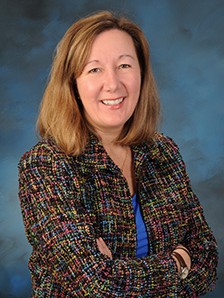A Davis Facilitator Responds
The Ottawa Community News published a response from Davis Facilitator Marcia Code to a series on dyslexia published in September 2013. Marcia wrote:
“I commend the author, Jennifer McIntosh for raising awareness regarding the prevalence of dyslexia and the struggle for schools to meet the demand for testing. This is reflected in the ” Annual Report on Ontario’s Publicly Funded schools 2013,” People for Education survey which states, “74% of elementary schools in eastern Ontario reported caps on waiting lists for psycho-educational testing .” (p.21) Even with a diagnosis and accommodations, many dyslexic students find school to be a daily challenge.
“I also identify with the author’s frustration for her son James, as I was in a similar position a few years ago. My son developed an aversion to reading and writing which began in Grade 1. As I had a background in teaching, I worked with him on phonics and drilled sight words on flashcards. We also stepped up our home reading practices but despite my best efforts, it did not resolve the problem.
“In fact, it was making things worse. It was humbling for me as a teacher and parent struggling to help my own child. My search for information led me to explore Davis methods. My son enrolled in a reading correction program in the fall of 2008. It suited him perfectly as it was not phonics-based, nor did it involve repetition or drill. Working with the dictionary and clay allowed him to explore the meaning of the high-frequency abstract words that interfered with his fluency and comprehension. My son’s goal was to do five words a week and we easily incorporated the Davis reading exercises into required reading for school. He is now fourteen, thriving at school, and reading for pleasure which I think is a testament to the success of his program.
“It is disappointing to read that Tracy Armstrong’s daughter did not have the same success. Davis programs are designed to be continued in a home setting where a support person can work one-on-one with the child. Trying to implement the home program in a busy classroom setting with the demands on teacher’s time and a student’s attention would be challenging to say the least.
“Looking beyond one parent’s experience, your readers should realize that there are thousands of clients who describe their experience with Davis as pivotal, providing them with tools and techniques to master symbols and words that previously had been a barrier to their learning. The Davis method for correcting dyslexia and other learning problems is delivered in 40 countries and 30 languages.
“In the article on support services, the vice-principal of Heritage Academy is reported to say, ‘only specific methods – provided by Heritage and another private school called Mindware Academy – are useful in teaching dyslexics to learn to read.’ This comment is a disservice to readers. It leaves them with the false impression that there are only two viable methods available -both delivered in a private school setting which is beyond the financial reach of many parents.”
Marcia Code is the owner of Vantage Point Dyslexia Services in Ottawa, Ontario. Web site: www.dyslexiaon.com
You can read the archived text of her response originally published at ottowacommunitynews.com
Here are links to archived posts from the original series that prompted Marcia’s response:
- Upside down and backwards: exploring dyslexia (September 5, 2013)
- Schools struggle to meet demands for dyslexia testing (September 12, 2013)
- Support services fill in gaps for dyslexia students (September 19, 2013)











It is not easy for parents with dyslexic kids. It requires a lot of patience from the parents side to help in correcting dyslexia.
I agree with Carter 100% it was definitely not easy for my mother growing up, And she had two children that didn’t learn right on the normal curve of expectation originally. I wrote a blog about specific study tips for individuals with learning challenges. l pulled from my own experience in college, but it may help you or others. Thanks, http://katiejoproduct.weebly.com/
To the author of this blog quote. ““In the article on support services, the vice-principal of Heritage Academy is reported to say, ‘only specific methods – provided by Heritage and another private school called Mindware Academy – are useful in teaching dyslexics to learn to read.’ This comment is a disservice to readers. It leaves them with the false impression that there are only two viable methods available.” Unquote. I couldn’t agree more, there are probably 1000’s of tips and useful ways for individuals to learn to read who have a learning disability such as dyslexia or others.